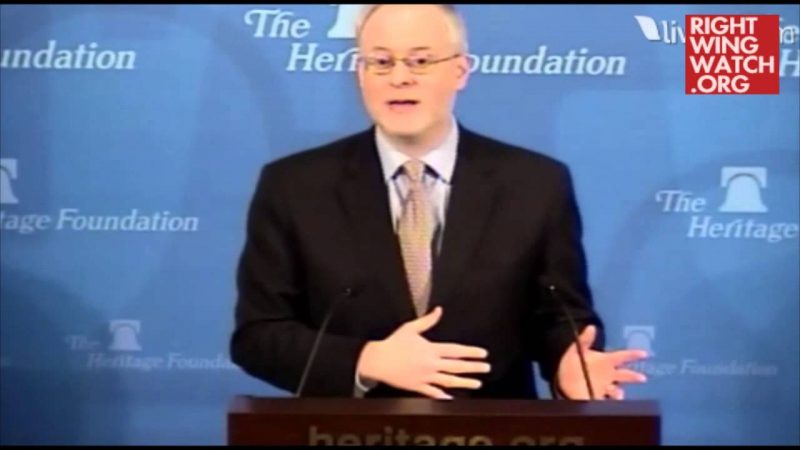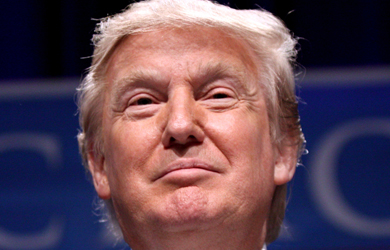The Heritage Foundation, one of the co-sponsors of the Values Voter Summit, held a breakout conversation to push one of the conference’s central themes: the indivisibility of social and economic conservativism. The overall political goal was aptly summed up by the Heritage Foundation’s Jennifer Marshall, who spoke of the need to call attention to the “moral bankruptcy” of the war on poverty and the welfare state.
Heritage has been promoting for some time now “Indivisible,” a small book of essays with a gimmick: Heritage asked people known for being social conservatives to write on an economic theme, and vice versa. Anti-gay crusader Harry Jackson, for example, contributed a chapter on the evils of the minimum wage, which he says is a form of coercion of employers that “reminds me of slavery.”
One of the speakers on the Heritage panel was Stephen Moore, founder of the radically anti-tax Club for Growth and now the senior economics writer for the Wall Street Journal’s notoriously right-wing editorial board. Moore said the growing national debt erodes the nation’s moral fabric, and he called for an end to the progressive income tax and the estate tax (described as a “death tax,” which he called “obscene.”) Moore also called global warming “the biggest myth of the last one hundred years,” suggesting that the bumper crop of reality- and science-denying congressional candidates may have friendly WSJ editorials to fall back on when challenged on their climate change denialism.
Former Ohio Secretary of State Ken Blackwell, now at the Family Research Council, warned that federal spending in the U.S. is approaching levels of western Europe, and warned that anytime government has gotten big “it has accelerated the collapse of the most basic economic unit in our country and in western civilization – the family.”
The workshop came to an awkward end when an audience member who said he has complications from diabetes and tens of thousands of dollars in chronic medical expenses wondered what the panel would offer people like him once they abolish “Obamacare,” and the panelists had nothing much to offer beyond standard right-wing talking points about medical malpractice, medical savings accounts, and marketplace competition. He didn’t seem convinced that they understood or cared about his problem.








